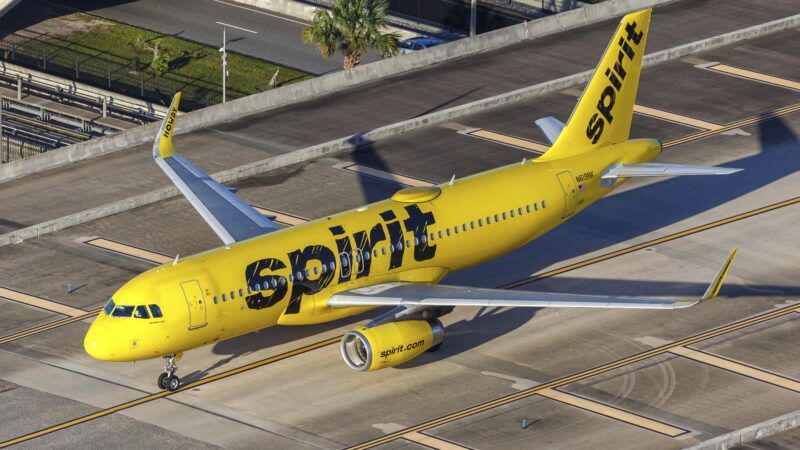Spirit Airlines May Go Out of Business Because of the Justice Department
The DOJ blocked Spirit's merger with JetBlue in 2024 over concerns about market consolidation, but markets also consolidate when failing firms go bankrupt and exit.

The Department of Justice (DOJ) blocked Spirit Airlines' merger with JetBlue in order to preserve competition in the domestic airline industry. Now, it looks like Spirit may go under.
In July 2022, JetBlue announced its acquisition of the foundering Spirit Airlines, which reported a net loss of $36 million in the third quarter of 2022 and $270 million in that year's fourth quarter. Ted Christie, Spirit Airlines' president at the time, described the deal as an "agreement to create the most compelling national low-fare challenger to the dominant U.S. carriers." But the DOJ saw things in a less flattering light.
The DOJ sued to block the merger in March 2023, alleging that "the proposed transaction [would] increase fares and reduce choice on routes across the country" by eliminating JetBlue's "Largest Ultra-Low-Cost Rival," Spirit, from the market. The DOJ based its intervention on the Clayton Act, which prohibits acquisitions whose "effect…may be substantially to lessen competition or to tend to create a monopoly." The U.S. District Court for the District of Massachusetts blocked the merger in January 2024.
District Judge William G. Young concluded that "Spirit is a small airline. But there are those who love it. To those dedicated customers of Spirit, this one's for you. Why? Because the Clayton Act, a 109-year-old statute requires this result—a statute that continues to deliver for the American people." But those who love Spirit won't benefit from the failing firm exiting the market.
Spirit filed for Chapter 11 bankruptcy in November 2024 and emerged in March 2025, following a period of reorganization. Spirit reported in its financial statement for the first quarter of 2025 that the airline had been "adversely affected by a challenging pricing environment" and that it expected this trend to continue for the remainder of 2025. Still, Spirit concluded that it would have sufficient liquidity to meet its future cash needs. Spirit's more recent report is less rosy.
Spirit told the Securities and Exchange Commission it would take "liquidity enhancing measures" such as selling aircraft, real estate, and excess airport gate capacity in a bid to meet the minimum liquidity covenants for its debt obligations and credit card processing agreement in its second-quarter financial statement. This cost cutting is in addition to the furloughing of approximately 270 pilots as of November 1, which Spirit announced in July. (Some of Spirit's problems are the result of "lower flight volume…compared to the prior year period," which is partially due to Americans reducing discretionary spending on travel in response to the economic uncertainty caused by President Donald Trump's tariffs.) Spirit predicts that it will default at some point over the next twelve months if these drastic measures aren't successful, raising concerns about another bankruptcy.
Brian Albrecht, chief economist for the International Center for Law and Economics, tells Reason that customers will be left worse off if Spirit fully leaves the market and sells off its assets. He also emphasizes that "bankrupt is not the same thing as out of the market." If Spirit files for Chapter 11 bankruptcy, then the company will be reorganized. "The question is whether some restructuring preserves the competitiveness of Spirit. I am not optimistic about that," says Albrecht.
If Spirit's performance following its first bankruptcy and restructuring is any indication of the company's long-term viability, there's reason to share Albrecht's pessimism. If bankruptcy drives Spirit to exit the market, the DOJ's actions will be largely to blame.


Show Comments (25)